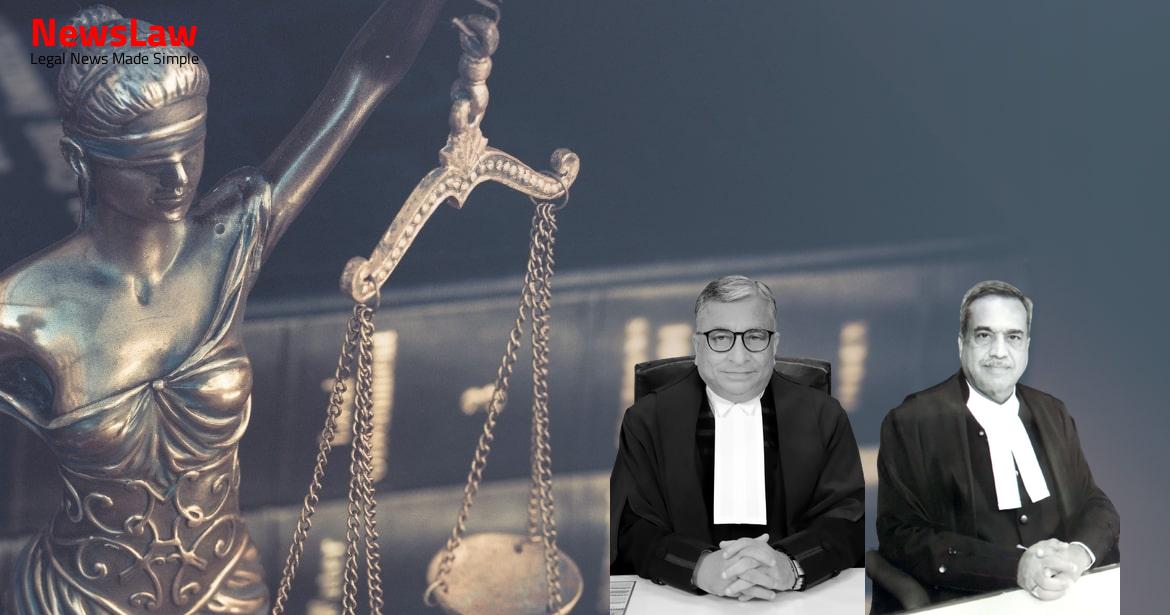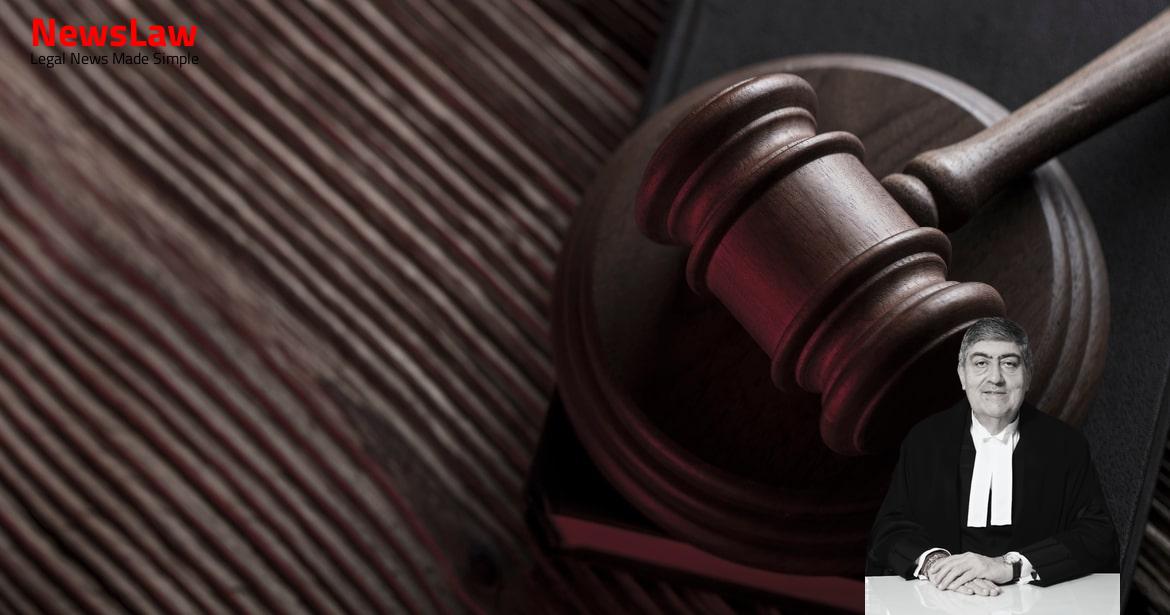This legal case delves into the delicate balance between statutory remedies and judicial intervention in disputes regarding assessment orders. The court’s analysis emphasizes the significance of following prescribed procedures, the hierarchy of appeal provided by the Act, and the need to exhaust alternative remedies. It underscores the importance of judicial prudence in refraining from exercising jurisdiction under constitutional provisions when statutory remedies are available. Stay tuned to explore the intricate legal nuances of this case!
Facts
- High Court entertained the writ petition against the assessment order under Article 226 of the Constitution of India
- Impugned judgment and order quashed assessment order and demand notice
- State of Maharashtra and others appealed against the High Court’s decision
- The writ petitioner submitted relevant documents and requested a personal hearing on 20.03.2020.
- The Assessing Officer passed an order on 20.03.2020 determining tax liability, interest, and penalty under MVAT Act and CST Act.
- The petitioner felt aggrieved by the order and filed a writ petition challenging the assessment.
- The Assessing Officer was not available for the scheduled personal hearing on 16.03.2020.
- No order was actually passed on 20.03.2020 as claimed; it was passed in July 2020 beyond the limitation period.
- Multiple attempts were made for a personal hearing on 17.03.2020, 18.03.2020, and 19.03.2020, but it did not materialize.
- The respondent did not appeal to the first appellate authority but directly filed a writ petition contesting the assessment order.
Also Read: Challenging Legal Presumptions in Negotiable Instrument Cases
Arguments
- Shri Sachin Patil, counsel for the appellants argued against the High Court entertaining the writ petition against the assessment order
- Pointed out that the High Court should not intervene in matters related to assessment orders under the MVAT Act and CST Act
- Emphasized on the availability of a statutory remedy through appeal before the first appellate authority
- Highlighted the existence of serious disputed facts regarding the date of the assessment order
- Cited various court decisions to support the argument against the High Court’s intervention in the case
- The Senior Advocate representing the original writ petitioner argued that since there was a previous decision against the assessee by the first appellate authority, it was unnecessary to file an appeal before them.
- The original writ petitioner chose to file a writ petition directly before the High Court instead.
- Both parties’ counsels were given a fair hearing during the proceedings.
Also Read: Legal Analysis of Admission Irregularities in Educational Institutions
Analysis
- The High Court committed a manifest error by not appreciating the statutory remedies available against the assessment order.
- The Act provides a special procedure for recovery of debts due to banks and financial institutions, indicating the need to follow the statutory remedies.
- The High Court should consider all relevant facts and circumstances before deciding on interference under Article 226, even without proper affidavits.
- The proper course of action against an assessment order would have been to appeal before the first appellate authority, rather than approaching the High Court directly.
- There is a hierarchy of appeal provided in the Act for resolving disputes, emphasizing the importance of following the prescribed procedures.
- Alternative remedies such as the appellate jurisdiction of the High Court under Section 35 of FEMA should be utilized effectively rather than bypassed for judicial review.
- Judicial prudence dictates refraining from exercising jurisdiction under Articles 226 and 227 when there is an alternative statutory remedy available, even if not expressly ousting the Court’s jurisdiction.
- Article 226 is not meant to short-circuit or circumvent statutory procedures.
- The Court must consider various factors before entertaining a writ petition under Article 226, such as the complexity of facts, presence of all material facts in the petition, availability of alternative remedies, any unexplained delay or laches, limitation laws, public policy restrictions, etc.
- High Courts should adhere to the parameters set by the Supreme Court regarding exhaustion of alternative remedies before entertaining petitions under Article 227.
- In public law remedies, ex parte writs of mandamus, orders, or directions should not be issued unless statutory remedies are inadequate for extraordinary situations.
- The vast majority of petitions under Article 226 are often filed for interim orders and to prolong proceedings, a practice that needs to be discouraged.
- Petitions under Article 227 may not be maintainable when statutory remedies are available, and parties are encouraged to exhaust such remedies before seeking judicial intervention.
- The High Court should not entertain a writ petition against an assessment order when there is an alternate statutory remedy available.
- The assessee did not provide valid reasons to bypass the statutory remedy of appeal.
- Judicial prudence dictates that courts refrain from exercising jurisdiction under constitutional provisions when there is an alternate remedy available.
- The High Court should have directed the assessee to first avail the statutory remedy of appeal before pursuing other remedies provided by the statute.
Also Read: Quashing of Enhanced Tuition Fee in Private Medical Colleges
Decision
- The appeal is allowed with no order as to costs.
- The respondent is advised to utilize the statutory remedy of appeal and other available remedies under the MVAT Act and CST Act.
- The High Court judgment is quashed and set aside.
- If the remedy is availed within four weeks, the appellate authority should decide without raising any question of limitation.
- The writ petition challenging the assessment order and notice of demand is dismissed.
Case Title: THE STATE OF MAHARASHTRA Vs. GREATSHIP (INDIA) LTD. (2022 INSC 991)
Case Number: C.A. No.-004956-004956 / 2022



